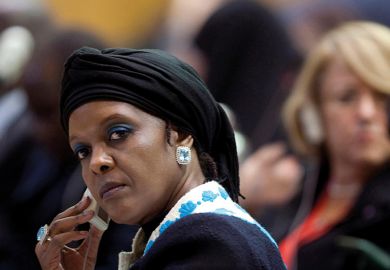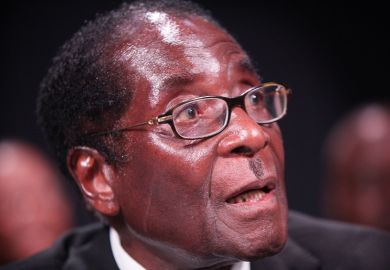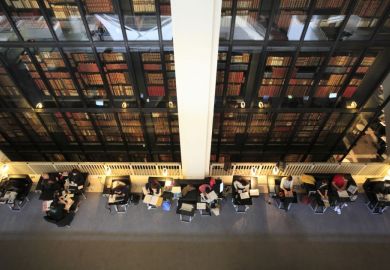Academics say the violent crackdown on protests in Zimbabwe has squashed any optimism for the future of universities in the country that remained after the ousting of Robert Mugabe.
Zimbabwe has faced its worst violence in more than a decade as the forces of Emmerson Mnangagwa, Mr Mugabe’s successor as president, brutally suppress demonstrations against fuel price rises. Twelve people have been shot dead by police and many more have been injured, while hundreds of protesters have been arrested.
The economic difficulties that prompted the government to dramatically increase fuel prices in January were likely to have a significant impact on universities, according to Stephen Chan, professor of international relations at SOAS, University of London, who said that Zimbabwean universities were already badly underfunded.
“This is something that will build and build. The country is not going to get better economically any time soon…and so the government is likely to cut its public subsidies to the universities,” Professor Chan told Times Higher Education.
He added that the government’s intermittent blocking of the internet during the violence has already disrupted access to vital educational materials for students and staff. Because Zimbabwean university libraries have often lacked funding for printed copies of books, foreign governments have often funded electronic access to periodicals and books. Without the internet, however, such access is of limited use.
Admire Mare, a Zimbabwean academic based at the Namibia University of Science and Technology, said that higher education staff and students had seen their transport costs escalate beyond affordable levels.
“The fuel price hike is certainly going to affect students. Transport and accommodation prices are likely to go up…I can only see the situation becoming dire if progressive social policies are not put in place in the next few days and months,” Dr Mare said.
Simukai Chigudu, professor of African politics at the University of Oxford, described the events in Zimbabwe as “deeply disturbing and deeply troubling”.
“The university is certainly a site where violence and politics play themselves out [in Zimbabwe]…frequently there have been crackdowns from the government,” he said.
Professor Chigudu, a Zimbabwean, said that it was “overwhelming” to try to assess the situation analytically while also being personally invested in the situation. “It does affect us scholars who straddle that careful line being even-handed and clear-eyed in our analysis but at the same time we’re human beings with families, friends, colleagues, on the ground living through this,” he said.
However, Professor Chigudu said that Zimbabwe’s universities offered a beacon of hope. He pointed out that during the turbulence in the mid-2000s, academics remained committed to their work.
Even when the University of Zimbabwe was “absolutely cash-strapped, with no flowing water, they continued to write, publish and convene and have intellectual discussions”, he said. “It tells you quite a bit about the function of the university as a social institution…a lot of people are doing what they can, not only to get by, but to continue to be educators and teachers.”
POSTSCRIPT:
Print headline: Optimism for Zimbabwean universities evaporates as country implodes
Register to continue
Why register?
- Registration is free and only takes a moment
- Once registered, you can read 3 articles a month
- Sign up for our newsletter
Subscribe
Or subscribe for unlimited access to:
- Unlimited access to news, views, insights & reviews
- Digital editions
- Digital access to THE’s university and college rankings analysis
Already registered or a current subscriber?








